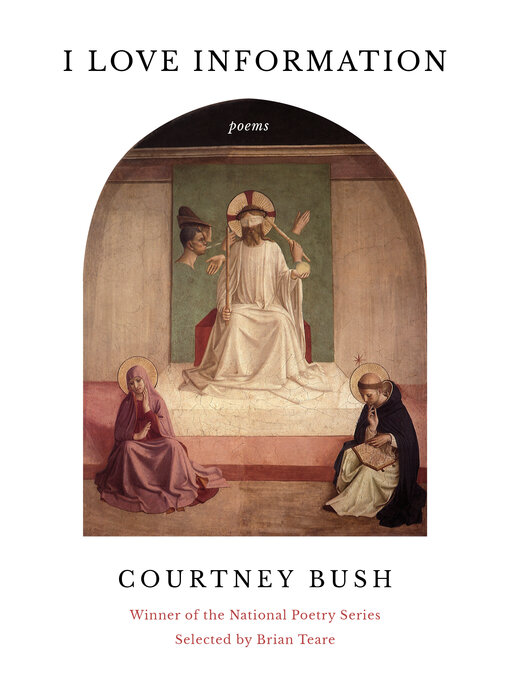I Love Information, selected by Brian Teare as a winner of the 2022 National Poetry Series, is a sophisticated and cerebral examination of knowledge, belief, and which begets which.
Egret feathers. Pulverized chickpeas. A "faint but constant series of ovals and lines" that, remarkably, spell the name Penelope. "Nobody owns the meaning of these things," Courtney Bush writes, but this does not stop the poet from seeking, from "reading meaning in the garbage" and in the flowers growing there. What does she seek? Not facts. Instead, something transcendent and mysterious, knowledges that can only be unlocked through experimentation with language, with art.
In lieu of linear thought, Bush's poems operate under unique logic systems that grow and branch like vines, driven not only by the urge to learn but also by the need for connection—between people, things, stories. Her speakers make cognitive leaps with youthful credulity, eager and open. "It comes down to a few things," says one. "Vessels and bags / Every crude tool / Every day a friend to tell." And another: "I want to tell you what a sword is. / To want to tell you has been my entire life." They are explorers of the pathways between our outer and inner worlds, translators between what is and what could be.
Bush's reverence for the act of thought echoes that of a religious scholar gazing at the heavens. In order to learn, these poems suggest, we must believe the not-known is worth knowing. We must let belief hover around all parts of our lives, as a child does. "To have the idea of the secret chord is to have the secret chord," Bush writes. To learn, we must make believe.


